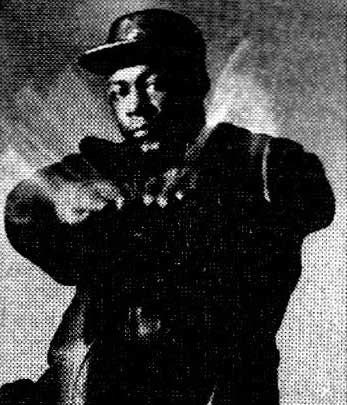| I don't know what that music is, but I know I want to dance to it | |
 |
The Times 22nd December 1989 Page: ?? |
 As the party season reaches its peak, David Toop goes looking for the "underground" origins of the music to which everyone is dancing "There are a lot of clubs in Manchester where you get your I Sharons and Tracys dancing around their handbags to the most left-field stuff," says Graham Massey. Characteristically, Martin Price, his partner in the Mancunian dance music quartet, 808 State, is argumentative. "They don't know it's left field and experimental," he protests, "because they haven't grown with it. It's just consumed by them. They're not going to search for it. They trip over it in a drunken haze." For the past two years, dance music has hovered in such a limbo that there is some comparison to the underground rock explosion of 1967. Having developed away from popular attention over a number of years, experimental dance music has burst into national prominence, both through the tabloid scandals of drugs and so-called "acid house" parties and through repeated chart successes. The underground has moved overground, and with that comes the tension between commercialism and innovation, an influx of opportunist musicians and, entrepreneurs, plus the new fans dancing around their handbags, blissfully unaware that they have been traditionally loathed by undergrounds of all persuasions and eras. Dance music as it is now defined is a hybrid form of Sixties soul, Seventies funk and symphonic soul, hip-hop, disco and European and Japanese electropop ranging from Kraftwerk and Ryuichi Sakamoto to Soft Cell and Thomas Leer. In its most underground form it is predominantly electronic and increasingly abstract, full of strange noises and tonalities, powerful moods and complex rhythms. Groups such as 808 State have displayed an inventive approach to rapid developments in music technology, combining synthesizers, drum machines and effects boxes of six or seven years' vintage (now considered antique and obsolete in more conventional circles) with the latest equipment. For the new breed of dance technicians, the trick is to use whatever is to hand. "Some of the best records are shoe-string," says Massey. The group pursues this methodology ruthlessly, going into a cheap 16-track studio every week with two carrier bags full of tapes for sampling. At work, they operate in a manner which is poles apart from the usual clinical image of electronic and computer music, using descriptive expressions like "alchemy" and "getting your hands in the mud". Price sums up the attitude they adopt when something untoward happens. "Great," he says. "Accident! Leave it". This is a philosophy which has paid off, simply because there is now a huge audience which wants to dance all night to manic rhythms and unusual sounds. Price fiercely denies that drugs are the sole underpinning of the dance scene. "It's the music that's important," he says. "It's the rawness. They're mad for it." The new dance music fans have shown just how mad they are for it by propelling British acts such as 808 State, A Guy Called Gerald and Adamski into the charts, alongside a flood of Italian imports which also capture the eclecticism of the current mood. Only a few years ago, it was house music from Chicago, garage tracks from New York and techno from Detroit which supplied the club soundtrack. European acts, inspired by all these sub-genres, now have the confidence and ideas to make records which are a match for American productions. Recently it has been Milan and Manchester that have created a stir, but the accessibility of music programmes for home computers, combined with the untapped potentials of digital samplers, means that next year's stars will be emerging from bedroom studios in droves, all clutching carrier bags full of floppy discs. Radio One largely ignores underground dance music, rock critics continue to dismiss it as insubstantial, and the Law Courts have shown that large and noisy all-night gatherings will not be tolerated. For true believers, this is perfectly acceptable. As Massey says: "The more pressure that is put on it, the more exciting it is and the more people want it. That's what the underground is about. Isn't it?" [Author: David Topp] |
|